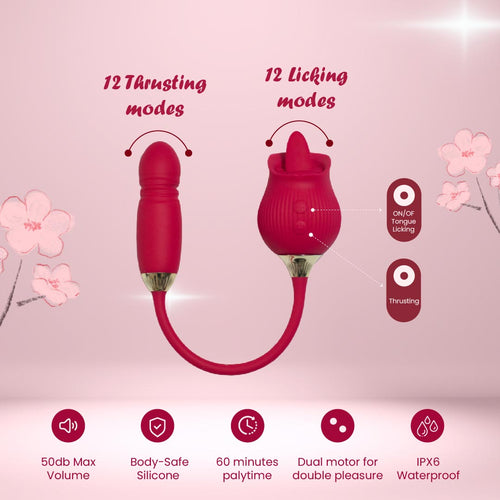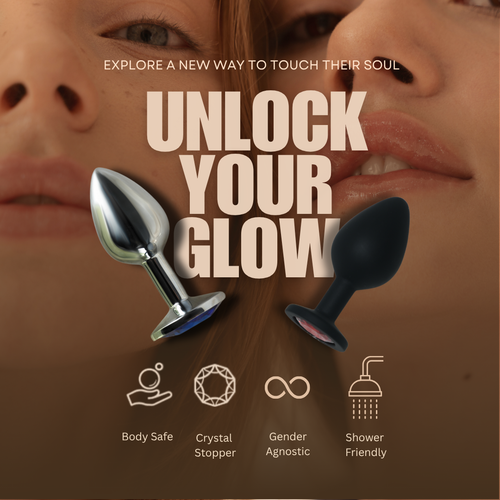
Is Your Relationship Sexually Compatible? 5 Signs to Check
Ever asked yourself if you're sexually compatible with your partner, but felt too awkward to say it out loud? You're not alone. Millions of couples silently struggle with mismatched desires and unspoken expectations in the bedroom.
Sexual compatibility isn't just about frequency – it's about feeling truly connected during intimacy. When you're sexually compatible with your partner, everything just flows naturally.
Most relationship experts agree that sexual compatibility plays a crucial role in long-term relationship satisfaction. It's not about having identical preferences, but rather how well you navigate differences together.
But how do you know if you're sexually compatible? The signs aren't always obvious, especially when feelings and attraction cloud your judgment. The five indicators we're about to explore might surprise you...
Understanding Sexual Compatibility in Relationships
What sexual compatibility really means
Sexual compatibility isn't just about how often you want sex. It's much deeper than that.
Think about it - when two people click sexually, they're on the same wavelength about desires, boundaries, and what feels good. They communicate openly about what they want without awkwardness or shame.
You might have different preferences sometimes (totally normal), but compatible couples find ways to meet in the middle without either person feeling constantly unsatisfied or pressured.
And here's something people miss: compatibility evolves. What works for you both now might change in five years. The key is growing together rather than apart.
Why it matters for long-term happiness
Ever been in a relationship where everything seemed perfect except the bedroom stuff? That disconnect eventually seeps into other areas.
Sexual dissatisfaction creates resentment. Period. When one person feels constantly rejected or another feels constantly pressured, that frustration doesn't stay in the bedroom. It shows up as arguments about dishes or in-laws.
The stats back this up - couples with mismatched sexual expectations report significantly lower relationship satisfaction overall. Not surprising when you consider how physical intimacy builds emotional closeness.
The balance between physical and emotional connection
Great sex isn't just about physical technique. The emotional component is just as crucial.
Physical chemistry gets relationships started, but emotional intimacy keeps them going. When you feel emotionally safe, you're more willing to be vulnerable physically. And when physical needs are met, emotional bonds strengthen.
It's a beautiful cycle when it works. The best sexual compatibility happens when both physical attraction and emotional connection are in sync.
Communication About Desires and Boundaries
Open dialogue without judgment
Sex talk doesn't have to be awkward. Real sexual compatibility starts with being able to talk about sex without making your partner feel weird or wrong for what they want.
Think about it - how many times have you kept quiet about something you wanted to try because you were afraid of being judged? Most of us do this. But relationships with great sexual chemistry have one thing in common: both people feel safe sharing their desires.
This means no eye-rolling, no laughing unless it's meant to be funny, and definitely no "ew, that's gross" reactions. Even if something doesn't appeal to you, responding with curiosity rather than disgust builds trust.
Expressing needs effectively
Saying what you want in bed isn't always easy, but it's necessary. Hinting rarely works - most partners aren't mind readers.
Try these approaches:
-
Use "I" statements: "I really enjoy when we..." instead of "You never..."
-
Be specific but gentle: "Could we try this position?" works better than vague suggestions
-
Positive reinforcement: "I loved when you did X" encourages more of what works
Active listening to your partner's preferences
Hearing your partner means more than waiting for your turn to talk. When they share sexual preferences:
-
Ask follow-up questions to understand better
-
Reflect back what you heard: "So you're saying you'd like more..."
-
Show genuine interest in their pleasure, not just yours
Navigating uncomfortable conversations
Some sex talks will feel uncomfortable - that's normal. The trick isn't avoiding discomfort but moving through it together.
When things get tense:
-
Take breaks if emotions run high
-
Remember you're on the same team
-
Focus on solutions, not blame
-
Consider timing - bringing up major concerns right before sleep isn't ideal
Strong sexual compatibility doesn't mean automatic perfection. It means creating a communication pattern where both partners can express themselves honestly about desire, boundaries and pleasure.
Matching Libido Levels and Sexual Frequency
A. Identifying your natural sex drive
Sexual desire isn't one-size-fits-all. Some people want sex multiple times a day, while others are perfectly content with once a month. Neither is wrong - just different.
Your natural libido is influenced by so many factors: hormones, stress levels, medications, mental health, and even how much sleep you're getting. The key is figuring out your baseline when life is relatively stable.
Ask yourself: How often do you think about sex? When do you typically feel desire? Is it spontaneous or does it build after physical touch begins? These patterns reveal your authentic sex drive.
B. Recognizing differences in desire
The uncomfortable truth? Most couples don't perfectly match in sexual desire. One partner typically wants sex more frequently than the other.
This mismatch becomes problematic when we take it personally. The higher-desire partner feels rejected. The lower-desire partner feels pressured. Both feel misunderstood.
What's critical is separating your partner's desire level from how they feel about you. Someone can be madly in love with you and still have a naturally lower sex drive - or vice versa.
C. Finding compromise that satisfies both partners
Sexual compromise isn't about meeting exactly in the middle. It's about creating a sexual relationship where both people feel respected and satisfied.
This might mean:
-
Scheduling sex to ensure connection happens regularly
-
Expanding your definition of "sex" beyond intercourse
-
The higher-desire partner taking responsibility for solo pleasure sometimes
-
The lower-desire partner occasionally initiating even when desire isn't initially present
The strongest couples talk about frequency directly: "I'd feel most satisfied with sex about twice a week. What about you?" Then find creative solutions together.
Remember that libidos naturally fluctuate throughout life. What works now might need adjustment later.
Shared Sexual Values and Attitudes
A. Aligning on sexual exploration comfort levels
Sexual compatibility isn't just about physical chemistry—it's about matching your boundaries too. Having similar comfort zones for trying new things makes a huge difference. When one person wants to experiment with role play or toys while the other feels uncomfortable, tension builds fast.
The key? Open conversations about what you're both willing to try. Maybe start by sharing fantasies or taking one of those online couples' quizzes together. You'd be surprised how many couples never actually talk about what they'd like to explore.
Remember that comfort levels can change over time. Something that feels like a hard "no" today might become interesting later. The important thing is respecting each other's current boundaries without pressure.
B. Similar views on monogamy and exclusivity
Nothing creates relationship drama faster than mismatched expectations about exclusivity. Some people assume monogamy is the default setting while others might be interested in an open relationship or polyamory.
These differences aren't just preferences—they reflect deeply held values about commitment and love. When partners align on these fundamentals, they avoid heartbreak and betrayal.
Have you had the "what are we?" talk yet? Many couples skirt around this conversation, assuming they're on the same page until they discover—painfully—that they weren't.
C. Compatible attitudes toward intimacy and affection
Sexual compatibility extends beyond the bedroom into everyday interactions. Some people need constant physical touch and affection to feel connected. Others might feel smothered by the same behavior.
Think about how you each show love. Does one of you initiate hugs and kisses throughout the day while the other prefers space? Do you both enjoy public displays of affection, or does one of you get uncomfortable?
These differences might seem small at first, but they can create real friction over time. The person who craves physical connection might feel rejected, while their partner feels constantly pressured.
D. Shared understanding of sex's role in your relationship
For some people, sex is primarily about pleasure and fun. For others, it's a sacred expression of love. And for many, it's somewhere in between.
Mismatched expectations about what sex means can lead to hurt feelings and confusion. When one partner sees sex as purely physical while the other views it as deeply emotional, conflicts naturally arise.
Consider how important sex is to your relationship's health. Is it a must-have several times a week? A nice-to-have but not essential? Something reserved for special occasions?
There's no right answer—just your right answer as a couple.
E. Navigating differing sexual histories
Almost nobody enters a relationship with identical sexual backgrounds. Maybe one of you has had multiple partners while the other has limited experience. Perhaps one partner has trauma related to sex that impacts intimacy.
These differences don't doom your compatibility, but they do require understanding and patience. Jealousy about past partners or anxiety about experience gaps can create barriers if not addressed openly.
What matters isn't erasing these differences but creating a safe space to talk about them without judgment. Your shared sexual future doesn't have to be limited by your different pasts.
Willingness to Grow and Adapt Together
Learning and evolving as sexual partners
Sexual compatibility isn't static—it's a dynamic aspect of your relationship that grows and changes. The most sexually compatible couples aren't necessarily those who started out perfect for each other. They're the ones who committed to learning together.
Think about it. Nobody hands you a manual for pleasing your specific partner. You figure it out through trial, error, and lots of communication. The couples who thrive sexually are constantly asking questions: "How does this feel?" "What would you like more of?" "Can we try something new?"
When both partners approach sex with curiosity rather than assumptions, magic happens. You become students of each other's bodies and desires. That ongoing education keeps things fresh even years into a relationship.
Addressing changes in sexual needs over time
Your body at 25 isn't your body at 35 or 45. Hormones fluctuate. Energy levels shift. Life stressors pile up. Kids might enter the picture. These changes inevitably impact your sexuality.
Sexually compatible couples acknowledge these shifts instead of pretending everything's the same. They have honest conversations when:
-
Desire levels change
-
Physical capabilities evolve
-
New interests emerge
-
Old favorites lose their appeal
The key isn't maintaining the exact same sex life forever—it's adapting together as your needs evolve. Sometimes this means adjusting frequency, exploring different positions for comfort, or finding new ways to connect when life gets hectic.
Seeking professional help when needed
Sometimes the challenges couples face sexually require outside expertise. There's no shame in this—it's actually a sign of commitment to your relationship.
Sex therapists, couples counselors, and medical professionals can offer valuable guidance for issues like:
-
Mismatched libidos
-
Physical pain during intercourse
-
Erectile dysfunction
-
Communication breakdowns
-
Past trauma affecting intimacy
Many couples wait years before seeking help, suffering in silence when solutions exist. The strongest partnerships recognize when they've hit the limit of what they can solve alone.
Remember, getting help isn't admitting failure—it's investing in your shared sexual future.
Conclusion
Sexual compatibility goes beyond physical attraction, encompassing honest communication, aligned libido levels, shared values, and the willingness to evolve together. When partners openly discuss desires and boundaries, address mismatched sex drives constructively, and respect each other's perspectives on intimacy, they build a foundation for lasting satisfaction.
Remember that perfect sexual compatibility rarely exists naturally—it's developed through patience, understanding, and mutual effort. Whether you've identified areas of strength or opportunities for growth in your relationship, the journey toward sexual harmony is ongoing. By approaching these five aspects with compassion and openness, you can create a fulfilling intimate connection that grows stronger over time.












